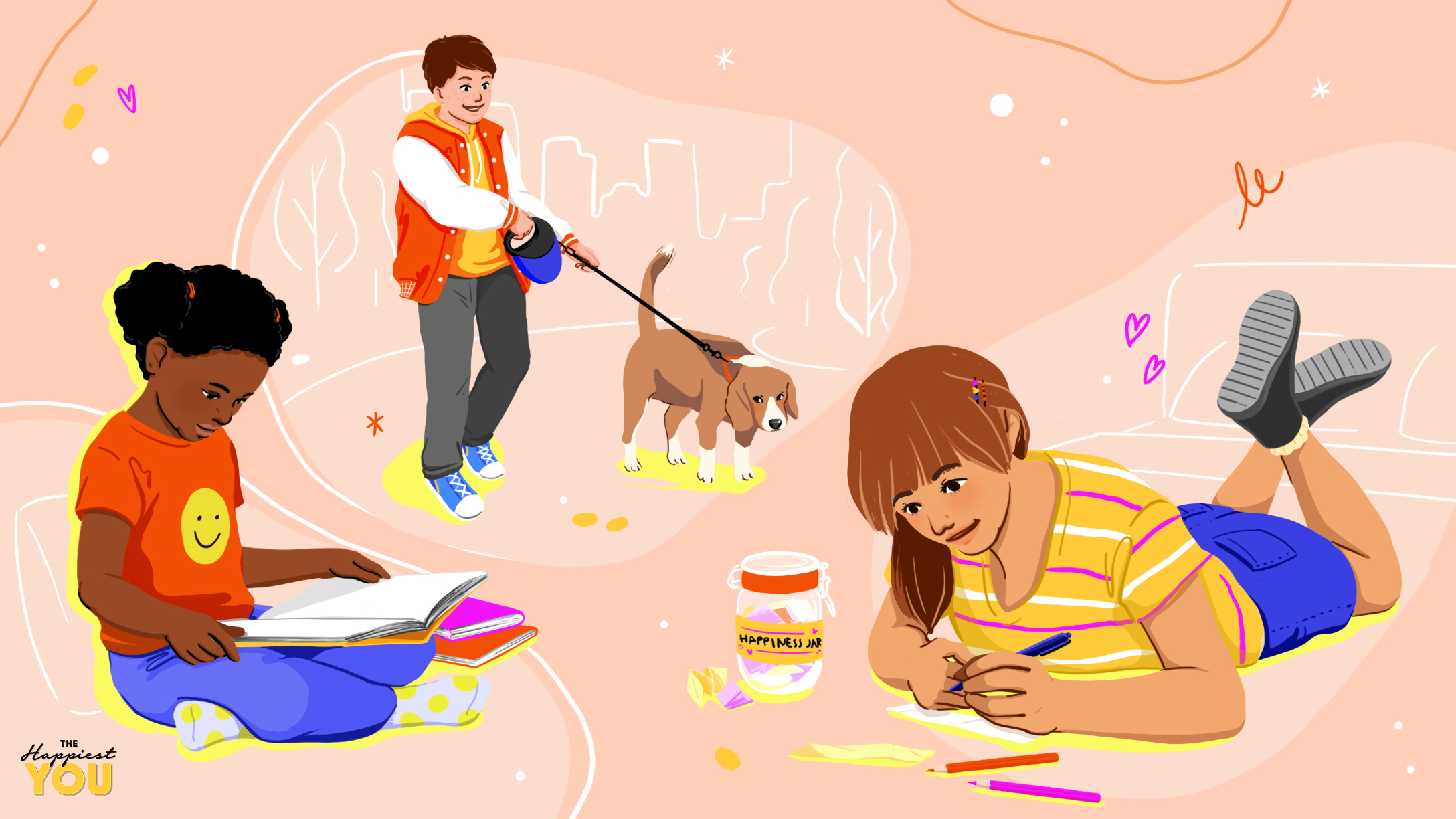
Want to know the secret habits of raising happy “big” kids?
From getting clear on screentime boundaries to embracing family chores (yes, really), here are the daily habits that can lead to happier kids.
They have moms who are happy with their own lives
Science has proven it: happy mom = happy family. The more satisfied a mom is, the higher levels of satisfaction her children report. Moms need to realize that in taking care of their own needs, they are also taking care to make sure their family is the happiest it can be. What makes each mom happy will be entirely individual, but incorporating things like hobbies or a passion at work, some sort of way to move your body, self-care, and true downtime are a great start.
They contribute to the family
Everyone — big kid or not — wants to feel like a valued member of a group. It’s how we humans are wired. So, contrary to the grumblings of your kids, giving them age-appropriate responsibilities around the house actually makes them happier and have higher levels of self-esteem. Sounds like a win-win on all fronts!
To help your kids gain all those awesome benefits, don’t be shy about assigning them daily, weekly, or monthly chores that fit your family’s schedule and lifestyle. As one example, if you have multiple kids, you could have a rotating list of daily chores that must be completed, so there aren’t any complaints of “that’s not fair!”
Oh, and as an aside: Chores and allowance are two totally separate things, so the benefit comes in assigning unpaid chores to kids. Who would have guessed, right?
They spend time outside
It’s common sense and also science: Getting outside is good for you at all ages, but especially in childhood.
They have tools to feel better
A mentally healthy kid knows that everyone feels down sometimes — but also knows how to take steps to feel the way they want to feel too. For instance, you can start a Happiness Jar — put out strips of paper so kids can write down something that happened each day that made them feel happy, and when they’re having a bad day, they can pull one out and read it to help themselves feel better. This can help boost a child’s mood, and as a bonus, get them in the habit of looking for things that make them happy, too.
Or, if you have an anxious child, give them some simple tools to help calm their brains in times of high stress like a worry journal, where they write down all of the things they're worried about and doing some calming breaths afterward.
The point is, all kids need strategies for handling big feelings — and it's our job to give them some.
They avoid social media
Just like adults, the less social media, the happier the kid. Reports have found that as social media usage increases, happiness and satisfaction decrease, and as social media extends to even younger users (Tik Tok, I’m looking at you), those effects are likely to become even more pronounced.
They have limited screen time
The research is still unclear if there is a magic number as to how much screen time a child can have safely (and honestly, as everyone is different, that number may never materialize), but a 2012 report did find that teens who had a limit between one and five hours a week to screen time were happier than teens who did not.
The most unhappy? Teens who clocked in over 20 screentime hours each week. To help your big kid set healthy screen time boundaries, you can implement household rules, such as no screens in the bedrooms, utilizing family management devices like Circle to set bedtimes, instituting no-screen days, and perhaps hardest of all, mirroring good habits yourself.
They have a good relationship with reading
Children who enjoy reading (and writing!) have higher levels of happiness, according to studies. That doesn’t mean your child has be reading literary works or even reading at an exceptional rate — they simply have to enjoy digging into a good book. Encourage them by asking about what kind of books they are interested in (and yes, graphic novels totally count), providing plenty of free time for reading, and offering them opportunities to use a free app like Hoopla to rent from the library, or even better, visiting the library together. Then, have quiet time at home, reading your new finds all together.
They participate in decisions
A 2015 study found that children whose parents allowed them to have control in decision-making grew up happier. That doesn’t mean allowing kids to have free rein and no boundaries, but rather, engaging in healthy and respectful discussion about making decisions together. It can be something as small as picking out their own clothes to things that impact the entire family, like asking them to pick out a meal for dinner this week.
They get enough sleep
Yup, it’s proven — adequate sleep = happier kids. The American Academy of Sleep Medicine lists the following recommended sleep times for “big kids”:
3 to 5 years old: 10 to 13 hours (naps included)
6 to 12 years old: 9 to 12 hours
13 to 18 years old: 8 to 10 hours
They have a regular bedtime routine
On that note, a 2018 study found that a consistent, regular bedtime routine in kids aged 3 to 5 was also associated with more long-term well-being. So, yes, you’ll have to just accept that you’ll be reading that bedtime book and fetching that forgotten glass of water for a couple more years.







